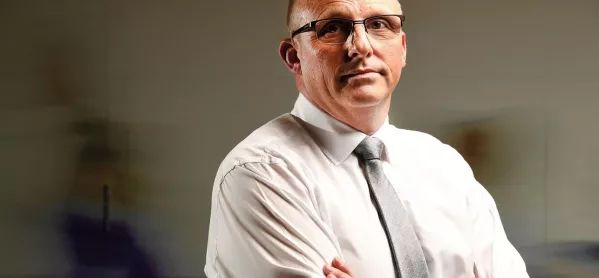- Home
- ‘We will not shy away from asking difficult questions’
‘We will not shy away from asking difficult questions’

We are in a new phase of the coronavirus pandemic now.
Schools have risen to the challenge of the past three months with incredible determination and resourcefulness.
We must not let that hard work be overlooked or taken for granted. It was above and beyond in a way that no one could have ever realistically foreseen.
Yet, for all this hard work and success, we must also not lose sight of the fact that we operate in a system that has been under incredible pressure for many, many years.
As we emerge from this crisis, the restraints of inadequate funding and stifling, high-stakes accountability need to be banished for good.
The collective wisdom, determination and sheer hard work of the profession needs to win through.
Coronavirus: Schools have shown ingenuity and resolve in this crisis
The government set schools in England an unenviable task the moment it announced it wanted more pupils back in class from 1 June.
As a result, school leaders and their teams have moved mountains in moments, often waiting for government guidance to catch up. They should be proud of their efforts.
During lockdown schools have remained open for vulnerable pupils and the children of key workers.
And for those who have stayed at home, school staff transformed the tried and tested face-to-face method to an entirely new home-learning offer for the vast majority of pupils.
This twin-track approach has been achieved overnight, demonstrating limitless reserves of ingenuity, cooperation and resolve from school staff.
This is a huge achievement, especially when you consider that around 25 per cent of the workforce has been legitimately unavailable through illness, isolation or shielding.
In this latest phase, schools will be admitting more pupils this term, with all these challenges still in place, and some new ones to boot.
Moving mountains
Splitting classes in half and sometimes into a third will mean that two and three times as many staff, classrooms and resources are needed than usual.
Having moved one mountain, school staff and pupils have got another one in front of them.
Over the past few weeks, NAHT, along with sister trade unions, has worked incredibly hard to get the government to accept that its original proposals were not workable and there would need to be local flexibility available to schools.
Many schools would not have been able to meet the safety advice provided by the Department for Education if they had not taken a phased approach.
We have also been working hard to gain clarity from both the government and its safety advisers about what the scientific evidence says when it comes to schools.
As a result, we have seen the government finally publish the documents that informed the Scientific Advisory Group for Emergencies (Sage) meetings.
We have also begun to develop a better picture of the level of risk that schools are likely to face.
The information we received from Public Health England towards the end of May provided us with some explanations.
We will not stop asking questions
The government has made its public health decisions. However, as we all know, the science is still emerging, and so we will need to continue to engage with the experts as they learn more.
We will not shy away from continuing to pose the difficult questions that need answers and give school leaders the advice they crave.
The government should not regard this as an inconvenience.
The full impact of returning more pupils to schools is yet to be seen. There is still an understandable level of fear and uncertainty in school communities and in wider society.
Parents who decide not to send their children to school should not be criticised and staff fearful of a return should be treated with compassion and understanding.
The controversy surrounding the government’s strategy could keep education at the top of the news agenda for a while yet.
Of course, education is not often front-page news.
And, in many ways, I would like nothing more than for it to disappear from the headlines for a while so that school leaders and their teams can get back to doing what they do best - educating the nation’s young people.
But now that education has got everyone’s attention, we shouldn’t allow this moment to pass and simply return to every aspect of the old days.
Everyone who cares about the welfare of children and the prospects of young people has started suggesting that the way we go about this national mission could and should be different in the future. I agree.
Tackling the disadvantage gap
I also believe that policymakers need to entirely rethink the way that we go about tackling inequality, poverty and opportunity for young people in this country.
Coronavirus has left the nation’s youth with an uninviting set of economic and social challenges to overcome. The chances of success for some were already pitifully small.
The disadvantage gap was already too wide for some before the pandemic struck. “Normal” has not been working for many, for quite a while.
Even those leaving school, college and university with impressive qualifications have sometimes had to toil on a treadmill that has been running too slowly to catch up with the accelerated pace of the modern world.
We cannot allow this moment to pass without taking major steps to improve the odds for young people.
We owe the lockdown generation that much, at least.
Paul Whiteman is the general secretary of the NAHT school leaders’ union
Keep reading for just £1 per month
You've reached your limit of free articles this month. Subscribe for £1 per month for three months and get:
- Unlimited access to all Tes magazine content
- Exclusive subscriber-only stories
- Award-winning email newsletters



